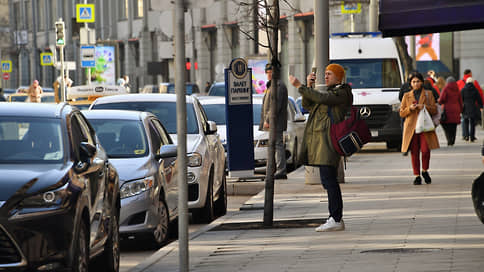The State Duma refused to adopt the “law on informers”
[ad_1]

The State Duma refused to adopt a bill giving citizens the right to independently record a number of traffic violations by sending pictures to the traffic police. Amendments to the Code of Administrative Offenses, legalizing a mobile application for these purposes, were submitted by the government to parliament back in 2017. The document, the deputies considered, contains a number of shortcomings that could lead to the emergence of “controversial situations and violation of the procedural rights of citizens.” In addition, the development of software will require about 3 billion rubles. The refusal followed, despite the instruction to the White House to finalize the amendments, which the head of state gave in 2021. The deputies declare that they are ready to consider the new bill when it enters the State Duma.
The amendments to the Code of Administrative Offenses rejected by the State Duma allowed citizens to independently film traffic violations in photos and videos by sending materials to the traffic police using an application codenamed “People’s Inspector”. Based on them, it was supposed to form “letters of happiness”. In Moscow, we recall, there is an application “Moscow Assistant” for fixing vehicles parked under prohibition signs or on lawns (with the distribution of fines from the Moscow Administrative Road Inspectorate). This practice was planned to be scaled up to the federal level, allowing fixing the passage of a red light, failure to comply with the requirements of signs, etc. It was assumed that the procedure for fixing violations would then be described in a government decree. In February 2019, the State Duma adopted the bill in the first reading.
A few days ago, the conclusion of the State Construction Committee with recommendations to reject the amendment appeared in the State Duma database.
The deputies never received a draft resolution from the government, as well as information about the “procedure for allocation” in the federal budget of funds needed for software development (2.7 billion rubles in 2017 prices), writes the head of the committee, Pavel Krasheninnikov.
“Questions about the procedure for fixing, processing and sending information remain unresolved, which may lead in practice to the emergence of disputes and violation of the procedural rights of citizens,” the conclusion says. “Further work on the bill seems irrelevant.” The first deputy chairman of the committee, Irina Pankina, speaking in the State Duma, said that the government “is in solidarity with the fact that there is no expediency in finalizing.”
Motorists at one time called the amendments in question “the law on informers,” recalled Yaroslav Nilov, deputy chairman of the LDPR Duma faction.
“They forced the whole country with cameras, tripods, and now they have decided to attract such Pavlikov Morozovs,” Mr. Nilov said. “It’s right that they rejected it, motorists can exhale.”
The use of applications contradicts the concept of auto-fixation, lawyer, expert on road safety Katerina Solovyeva supported in an interview with Kommersant. “When a stationary or mobile camera is working, the computer itself detects violators in the car stream, and the person directs the smartphone wherever he wants,” she explained. “Out of the five cars parked under the sign, I don’t take pictures of one, because this is my brother’s car. Well, what kind of auto-fixation is this?
This is not the first bill to tighten control over drivers, which was rejected by Parliament. At the beginning of the year, we recall, following a meeting between State Duma Speaker Vyacheslav Volodin and representatives of the White House, it was decided to withdraw (or reject already adopted in the first reading) government bills, which have not been moved for more than a year. Based on this meeting in April, Parliament rejected amendments on the introduction of a deposit for a car (it was planned to oblige drunk drivers to pay 30 thousand rubles for the return of a car from a car impound), on deprivation of the rights of drivers who systematically commit gross violations, and on the introduction of a fine of 5 thousand . rub. for dangerous driving. However, the considered bill has a peculiarity: in 2021, Vladimir Putin instructed the White House to “complete work” on the amendments by June 1, 2022. In June 2022, the Kremlin press service told Kommersant that the presidential administration received a “report” from the government on this bill, but its content and further fate were not reported.
“The draft law required significant revision, and the relevant department agreed with our position (Ministry of Internal Affairs.— “b”), – said Irina Pankina to Kommersant. – However, in the event of receipt of new well-developed proposals, we will consider them.
Against the backdrop of the State Duma’s decision to abandon the “People’s Inspector” project, the traffic police continues to use citizens’ complaints about violators (calls to 112, social networks, appeals through police websites, etc.) to initiate administrative cases, but at the same time, protocols are drawn up against violators – automatic They do not receive chain letters. According to the Scientific Center for Road Safety of the Ministry of Internal Affairs, in 2022, the traffic police stopped 646.5 thousand violations based on information received from “members of the public”, of which 7.2% were drunk driving or refusing to be examined, and 5, 3% – violations of the rules for transporting children.
[ad_2]
Source link








